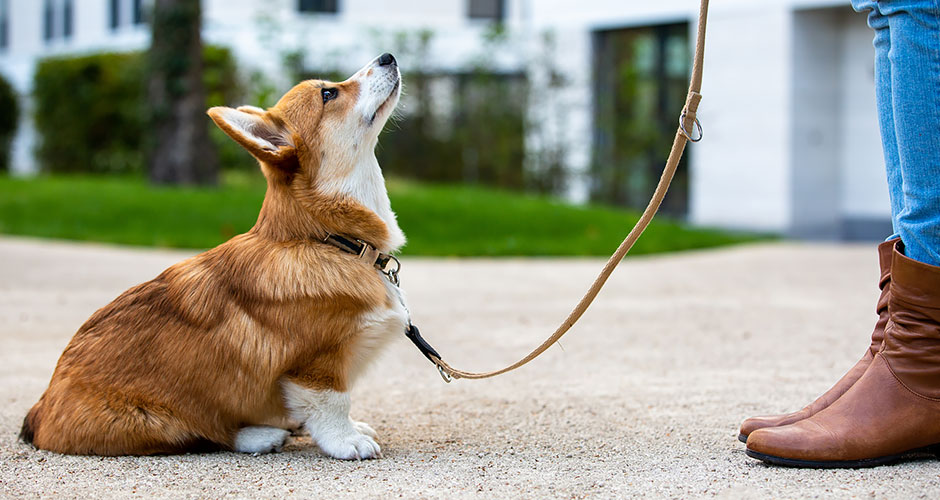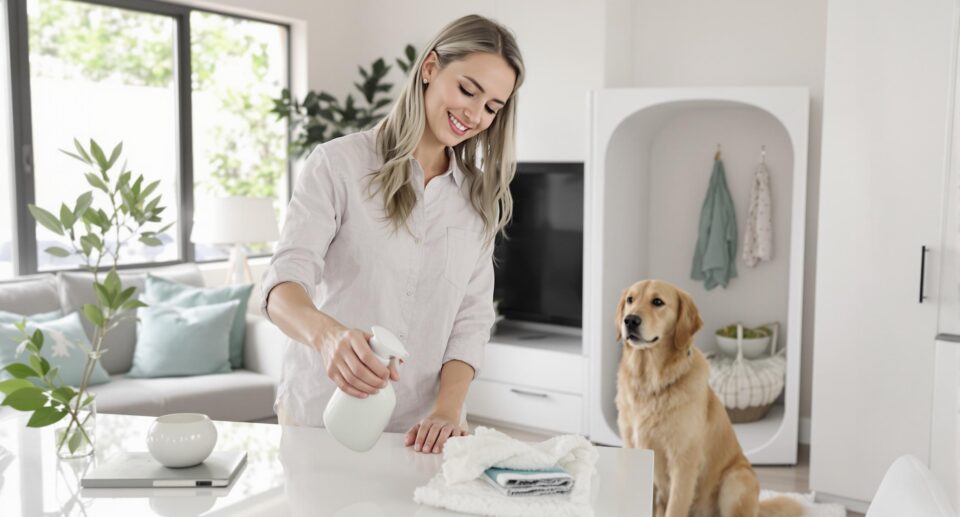
You can start training your dog or puppy the first day you bring them home. From day one, you can begin to set expectations and boundaries so you can raise a dog that’s well-mannered and fun to be around.
Crate Training Your New Dog
Crate training is an invaluable skill for all dogs, even if you do not plan to crate your dog often throughout their lifetime. When a dog is crate trained, they can be depended upon to settle quietly in their crate without barking or whining, unless necessary to communicate their needs.
A crate is a safe, quiet place for your dog to relax. When your dog is in their crate, you do not have to worry about them getting into danger, for example, chewing on electrical cords or consuming household toxins. Dogs instinctively avoid making a mess in their sleeping quarters, making a crate a useful tool for teaching your puppy to control their bladder and bowels.
Housebreaking Your Dog
Your new puppy or adult dog will need time to learn how to communicate their needs with you, how and when to control their bladder and bowels, and where they will be expected to eliminate.
Routine is crucial to successful housebreaking. Take your dog outside (or to an appropriate potty area, like a puppy pad) every few hours, immediately upon waking, after playtime, and 15-30 minutes after meals.
Prevent accidents before they happen by taking your dog to go potty often. In time, you’ll be able to predict their urges to eliminate. Watch for signs that your dog needs to to out. They may begin to sniff and pace around in circles before squatting.
Along the way, you can expect accidents to happen. Make sure you’re prepared by stocking up on paper towels and an enzymatic cleaner. An enzymatic cleaner completely neutralizes the scent of urine or feces, which can attract your dog to eliminate again in the same spot.
Avoid punishing your dog or making a fuss when they have an accident, as they may become more inclined to hide when they need to “go,” rather than learn to communicate with you.
In time, you can encourage your dog to let you know when they need to go out. Some dogs naturally begin to sit near the door, scratch at the doorframe, or whine when they need to go out. You can also teach your dog to ring a bell or press a button to get your attention.
Puppy Pads: Should You Use Them?
Puppy pads are optional. You may decide to use puppy pads if you’re concerned that you will not be able to get your puppy outside quickly enough to avoid an accident. If you do not have a safe, private space for your puppy to go outside, they can be invaluable for a puppy that is not yet fully vaccinated.
However, using puppy pads can communicate to your dog that it’s always okay to eliminate indoors. You may decide to use them for your dog’s first few months, then later transition from using puppy pads to only going outside. You might decide to use puppy pads part-time, through adulthood, or you might forego puppy pads altogether. It’s up to you.
Discouraging Unwanted Behaviors
What should you do when your dog misbehaves? Keep in mind that dogs do not naturally understand “right” from “wrong” and that their behaviors are never spiteful.
When a dog is destructive, eats something they shouldn’t, or otherwise engages in undesirable behavior, it’s simply because they need more training.
Having a dog that’s reliably trained takes clear communication, repetition, and motivation. It can be incredibly challenging to overcome innate urges. For example, you may ask your dog to sit and stay, only for them to run off in pursuit of a rabbit. It’s not as though your dog does not respect you or intends to disobey.
Many problem behaviors can be resolved through redirection. Redirection is a technique that involves replacing an unwanted behavior with an appropriate one.
For example, if your dog is chewing on your furniture, you’d simply redirect them to a chew toy, and praise them when they begin to play appropriately.
Or, if your dog jumps up on you to greet you when you get home, you’d train them to “sit” politely instead before rewarding them with attention.
There are many schools of thought when it comes to dog training. The majority of professional dog trainers and behaviorists, especially those certified by organizations like the Association of Professional Dog Trainers (APDT) and the Certification Council for Professional Dog Trainers® (CCPDT®), recommend relying on rewards and positive reinforcement rather than punishment.
Consider working with a professional dog trainer whether you’re struggling with problem behaviors or want to give your puppy a bright start. You can find a local dog training organization, independent trainer or behaviorist, or even training resources through your local humane society for puppy classes, one-on-one behavioral modification sessions, and groups for dog sports like flyball, barn hunt, agility, and more.





